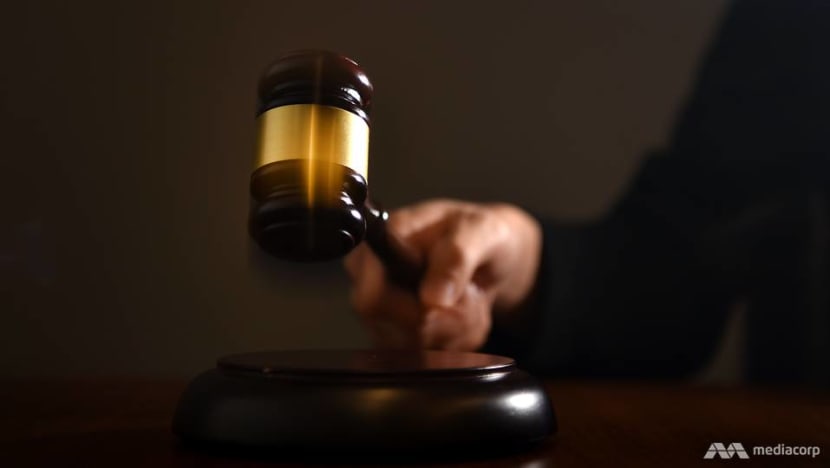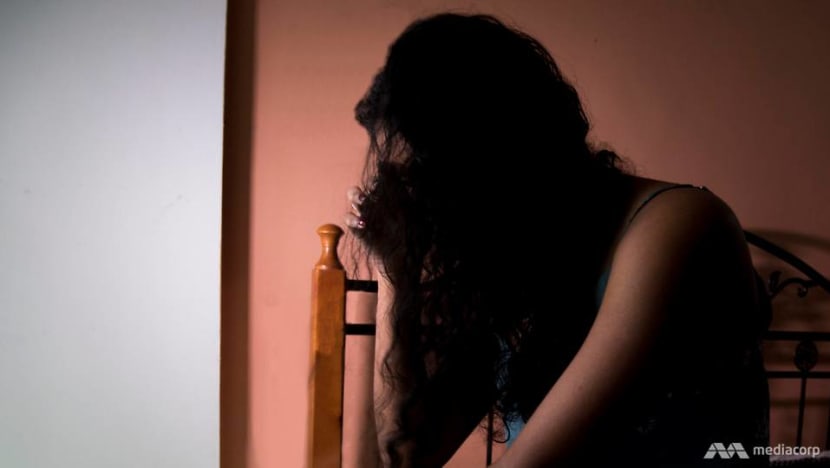Commentary: Should gag orders be imposed on all cases of sexual abuse?
Gag orders are issued to protect victims from public scrutiny – but often in cases of sexual abuse, gag orders extend to the accused as well. Law Society president Adrian Tan explores when exceptions to the principle of open justice are made in Singapore.

File photo of a gavel. (Photo: CNA/Jeremy Long)
SINGAPORE: In the early days of Singapore, newspapers would publish reports of divorces of ordinary people. Their full names would be stated, together with details of why their marriage broke down: Desertion, unreasonable behaviour, infidelity with a third party (who would also be named).
The rationale for such stories was simple: Divorces were heard in court. Court proceedings were fair game.
After all, the public had the right to see the legal system in motion, and so could enter and watch any open court hearing. All hearings, whether in open court or not, were announced in advance on the court notice board.
The press had the right to disclose details of cases to their readers, in the name of justice. Those cases covered, not just divorce, but crime as well. The more horrific the crime, the greater the public’s appetite to read about it.
That is the concept of open justice. Accused persons are publicly tried. The evidence is publicly heard. The court’s verdict is publicly announced. This lays the foundation for our confidence in the legal system.
WHEN OPEN JUSTICE GOES OVERBOARD
But it was possible for open justice to go overboard. Newspapers would feature pictures of victims alongside sensational descriptions of the crimes inflicted on them and tearful witness testimonies.
People soon began to reconsider whether justice demanded such reporting due to two problems.

The first is witness protection. Justice requires that witnesses be unafraid to testify in court; that there would be no repercussions on them or their loved ones if they told the truth. They might not feel that way if their identities were revealed, especially in cases involving criminal organisations.
The second is re-victimisation. Victims of some crimes suffer twice: First, when harmed by the crime, and second, when testifying against the wrongdoer in court.
It is bad enough for crimes such as embezzlement or robbery. Ordinary people would be embarrassed by the unwanted publicity brought on by testifying in court as victims.
It is worse for certain crimes that carry a stigma for the victims. Sexual abuse is a prime example. By and large, abuse victims do not want to be scrutinised or known to the public in that light. They do not want to be defined by the worst experiences in their lives.
So, the legal system developed exceptions to the idea of open justice.
GAG ORDERS PROTECT VICTIMS – BUT KEEP WRONGDOERS ANONYMOUS
In Singapore, courts have the power to make special orders, commonly gag orders, which prohibit people from publishing anything that could help identify a victim. The prosecution applies for the gag order, which the court decides whether to grant.
Gag orders can extend to cover the names of the accused, should identifying the accused lead to the identification of the victim. This is often the case when the accused abused someone close, for example a family member, classmate, or colleague.
For the same reason, some gag orders cover the name of the accused’s workplace or school: Disclosing that information might lead to disclosure of the victim’s identity.
If the accused is found guilty, the gag order over their name will not be lifted. The victim’s identity still needs to be protected, even if it means protecting the criminal’s identity too. The same applies even after the abuser completes their sentence – which means they might go back into society with their identities concealed.
That might alarm members of the public – one would want to know if a sex offender is living next door. But our society operates on the principle that if someone has done the time and paid for the crime, they deserve a fresh start.
WRONGLY ACCUSED CAN SUFFER PUBLIC ATTENTION
It is important to keep in mind that gag orders are meant to protect the victim, and never the accused. Yet opinions are divided on whether the accused has a right to anonymity during trial.
On one hand, the concept of open justice means the public should have the right to know if someone is accused of a crime.
On the other hand, our legal system assumes that the accused is innocent until proven guilty. When we name the accused before the trial is over, they will suffer unwanted public attention – even if they are cleared of charges later.
Case in point is the Mount Elizabeth Hospital doctor, who in August 2021 was acquitted of molesting a woman after she admitted that she lied in her allegations. The doctor said that the trial, which lasted four years, were an ordeal for him, as well as his family, friends, staff and patients.
WHEN GAG ORDERS PREVENT OTHER VICTIMS FROM COMING FORWARD
However, there are instances where lifting a gag order helps bring the culprit to justice.
Take for instance Chua Yi Jin Colin, who pleaded guilty to filming voyeuristic videos of women. At the start of the case, the court ordered a gag order to prevent the publication of any information that might identify his victims.
Because the victims were Chua’s schoolmates and friends, the gag order covered Chua’s name too. But Chua’s victims told the court they didn’t want his name to be concealed.
One victim was approached by a former schoolmate who suspected she could be a victim too – but she couldn’t lend any help due to the gag order.
“I feigned ignorance and advised her to approach the police or seek professional help if she really felt she was a possible victim. This incident made me feel very guilty,” she said, according to the grounds of decision.
Another victim said she was worried when she saw Chua posting on social media with female friends, and she could not warn them.
In other words, the gag order prevented victims from helping other victims. The court eventually decided to lift the ban on disclosing Chua’s name.
Chua appealed against the court’s decision, but Chief Justice Sundraresh Menon dismissed the application. The Chief Justice said that when victims consented to disclose the accused person’s identity, the court would then give more weight to disclosure in the interests of open justice.
There is a difficult balance between disclosing the accused’s identity so more victims can come forward – while protecting them from scrutiny. In deciding whether to lift gag orders on the accused, the prosecutor and the court must assess whether the wrongdoer may have had other victims.
TENSION BETWEEN GAG ORDERS AND OPEN JUSTICE
Debates over gag orders will never be resolved because there is a tension between gag orders and the concept of open justice. Court proceedings should be transparent. Wrongdoers should be named, not just because we want to shame them, but because we need to be protected against them.
Whenever gag orders are used, there will always be some people who suspect a conspiracy or a cover-up. If something alarming is reported, but key details are suppressed, then there will be a feeling of dissatisfaction with the legal system – especially when information flows so readily in this hyper-connected age.
Gag orders are like strong medication. They are necessary but must be used in small doses. Otherwise, there will be unpleasant side effects.
Adrian Tan is President of Law Society Singapore and Partner at TSMP Law Corporation.




















